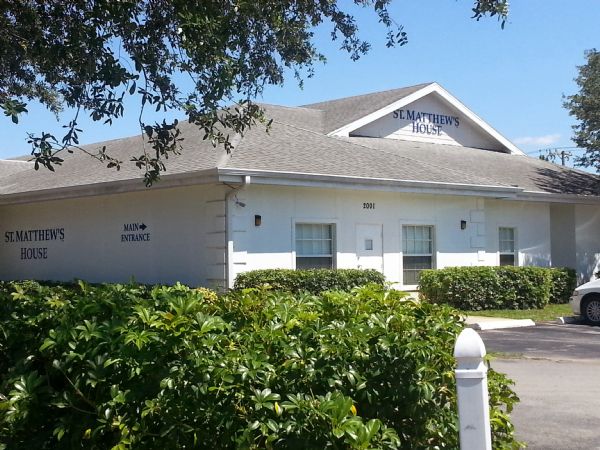Activists from 20 churches: Collier Clerk’s excess red tape holding up fed money for homeless, needy
|
||||||||||||||||||||||||||||||||||||||||||||||||||||||||||||||||||||||||||||||||||||||||||||||||||||||||||||||||||||||||||||||||||||||||||||||||||||||||||||||||||||||||||||||||||||||||||||||||||||||||||||||||||||||||||||||||||||||||||||||

|
|
|
||||||||||||
| Description | ||||||||||||||||||||||||||||||||||||||||||||||||||||||||||||||||||||||||||||||||||||||||||||||||||||||||||||||||||||||||||||||||||||||||||||||||||
Activists from 20 churches: Collier Clerk’s excess red tape holding up fed money for homeless, needy
St. Matthews House no longer seeking fed funds because of Clerk; City of Naples lodges complaint, $1 million fed money left not spent last year
By Gina Edwards Naples City Desk A coalition of activists from 20 Collier-area churches says excessive red tape and moving target rules by Collier Clerk of Courts Dwight Brock is holding up much needed federal grant money to help Collier’s needy and homeless families and individuals. Some area non-profits, fed up by slow pay-outs and changing rules under Brock and the county’s housing department, are no longer applying for the $2.5 million in federal grant money awarded to Collier County each year. “They don’t have the patience, the staff and the strength to fight the county just to get the money,” says David Flood, director of Faith Communities to End Homelessness, a loose coalition of activists from 20 Collier area churches that formed a year ago. St. Matthews House, the county’s largest homeless shelter, is not seeking any more federal Housing and Urban Development pass through grants from Collier County beginning this funding cycle because of excessive delays by the Clerk’s office in providing reimbursements, says President & CEO Vann Ellison. Reimbursement requests can take, on average, 11 months for the Collier Clerk’s office to accept, Ellison said. That compares to weeks it takes to get reimbursed directly from HUD and weeks in Lee County, Ellison said. The complexity and staff time to deal with grants in Collier is adding 35 to 40 percent to St. Matthew’s administrative costs. “Economically, it just does not make sense for us to do business,” Ellison said. “The Clerk’s Office has said they reserve the right to change the rules at any time without notice.”
Each year, Collier County is awarded approximately $2.5 million from HUD in Community Development Block Grant Funds which can be used for a wide variety of public services for low-income or disabled residents or for public facilities in low-income areas. According to a report Collier County filed with HUD in late 2013, the county reported that project delays by grant recipients who couldn’t meet requirements to get approved grants off the ground caused the county to pull-back and redirect $3 million in CDBG money last year in February 2013. Delays are being caused by excessive red tape requirements, some grant recipients say. City of Naples Manager Bill Moss sent a letter to County Manager Leo Ochs just over a month ago expressing concerns about the onerous requirements the county is enforcing on the CDBG process. Moss said the county, for example, required a wetlands and flood plain assessment when the city obtained a HUD grant to replace existing playground equipment to accommodate disabled children. “We’re having internal discussions on whether it’s worth the time and effort,” Moss said in an interview about accessing future grants. The city is entitled to about $100,000 a year in CDBG grants, and it’s had the county administer the money. In one email, a city staffer wrote to his boss to explain that months of back and forth requirements had delayed the start time of grant-funded intersection improvements by the George Washington Carver apartments and the River Park community for almost a year: “This is a mess,” the city employee wrote, adding that the county was forcing documentation requirements that hadn’t been asked for in the past. “This Department is spending excessive time trying to meet the unrealistic requirements for the two existing grants that have been issued to the City by Collier County’s Housing, Human and Vet Services Dept. We’ve been working with them for several months (in one case over a year) just to get the projects started. And they’re still not started. So until we get these two grant projects under our belt, I can’t afford to allocate more staff time to no end,” department head Greg Strackaluse wrote to Assistant City Manager Roger Reinke. Ochs couldn’t be reached for comment, but in an email response to Moss he wrote: “Environmental reviews are one area where our past practices were often not deemed satisfactory. Over the last year we have made necessary strides toward enhancing the quality and compliance of sub recipient environmental documents to ensure HUD compliance.” Ochs said he would ask staff to talk to HUD’s technical advisor about the issue. The non-profits’ and community frustration comes as Brock’s practices are under scrutiny following his January threat to sic law enforcement on the board members of the charity founded by Brock’s 2012 political opponent over a federal CDBG grant that closed 4 years ago. Commissioners Georgia Hiller, Tim Nance and Tom Henning voted to send a joint letter with Brock to HUD’s inspector general asking HUD to investigate Brock’s former political opponent John Barlow. Barlow and H.O.M.E. have said Brock made false and malicious allegations for political reasons and that their own independent audit shows H.O.M.E. properly spent and accounted for all its state and federal money. Collier County’s housing department has undergone an overhaul in the past three years and critics say the department has become a pressure cooker under scrutiny by Brock’s Finance and Internal Audit departments, both headed by Kinzel. The county’s former housing director, Marcy Krumbine, was fired after a Brock audit found fault with controls over federal grant money to buy houses in the Neighborhood Stabilization Program. The division administrator over Krumbine later resigned. And a grants compliance manager that contradicted Brock’s office resigned last year.
Changing rules
Representatives from Faith Communities to End Homelessness met with Brock last year but Flood said the situation on reimbursements isn’t solved. “The clerk did attend and he did a fair amount of talking down to us all,” Flood said. “He acted like we didn’t know what we were talking about and our concerns became minimized from his point of view.” A key program to provide rental assistance to needy residents through the Collier County Housing Authority has no applicants. Activists like Flood, of the Faith Communities to End Homelessness, said the rental assistance is key assistance to help people escape homelessness. Faith communities had begun raising money for a $25,000 match so the Collier County Housing Authority could apply for the rental assistance program. In past years, the Housing Authority has not had to raise the money for the match. The Faith Communities organizers say they were told by the county they had until fall to raise the matching money, but in recent weeks organizer Bruce Hobbs said they were told if they didn’t already have the funds on hand the application wouldn’t be approved. The Faith Communities organization doesn’t apply for grant money. Hobbs said the group formed to provide an advocacy voice for the homeless and those in need. “We’re interested in solutions. If there are log jams and inefficiencies, then they need to be corrected,” Hobbs says. “If we’re not getting our fair share of resources (for the needy) we’re being remiss. We’re not living up to our moral obligations as a faith community.” Armando Galella, district director for Catholic Charities, said his organization has decided not to apply for federal CDBG funds from Collier County to pay for emergency rental assistance in the application selection process for the coming year that begins Tuesday. Galella said the decision is primarily because of requirements related to putting up a dollar-for-dollar match. Reimbursement delays are getting better, he said. “There’s been a vast improvement over the past several months,” Galella said. “In the past it was a very serious issue.” For example, Galella said that in the past if six client files were sent to the Clerk’s office for reimbursement for aid and the Clerk’s office determined that one of the files was missing information based on the clerk’s interpretation of HUD rules, the entire batch was rejected and sent back. “It goes to the back of the line and we wait months and months,” Galella said. Galella said the county’s housing department has made a significant effort to be in constant communication with them so that files are accurate, complete and precise so that there are fewer and fewer interpretations of errors by Brock’s office. Housing and Human Services Director Kim Grant was not available in recent days, but she said in an earlier interview Tuesday that “95 percent of payments go through the clerk’s office without a peep now.” And she said her department is meeting more frequently with those awarded grants. “We have really recognized that we have an important role in helping our partners be successful,” Grant said. But Hobbs and Flood said they want to make sure the available federal money is being used in ways that address pressing community needs. Leaving hundreds of thousands of federal rental assistance money for the needy untapped is a problem, they say. “The great injustice is not having services available to people in need,” Hobbs said.
SEE VIDEO of Hobbs & Flood. See Annual Report to HUD on p. 29 for info on unspent money. Contact Gina Edwards at ginavossedwards@gmail.com or by phone at 239-514-1336
Dateline: Naples, Fla., May, 6, 2014 Contact Gina Edwards at 239-293-3640 or by email at ginavossedwards@gmail.com
See related stories:
Gina Edwards is a national award-winning investigative reporter with more than 10 years experience reporting on Southwest Florida. |
| Other Images | |||||||
|
| Paid Story |
| You don't have permission to view. Please pay for this story to gain access. |
| Paid Video |
| Ask a question or post a comment about this story | ||||||||
|
||||||||
| |||||||||||||||||||||||||||||||||||||||||||||||||


 Brock and Finance Director Crystal Kinzel did not respond to an interview request.
Brock and Finance Director Crystal Kinzel did not respond to an interview request.










